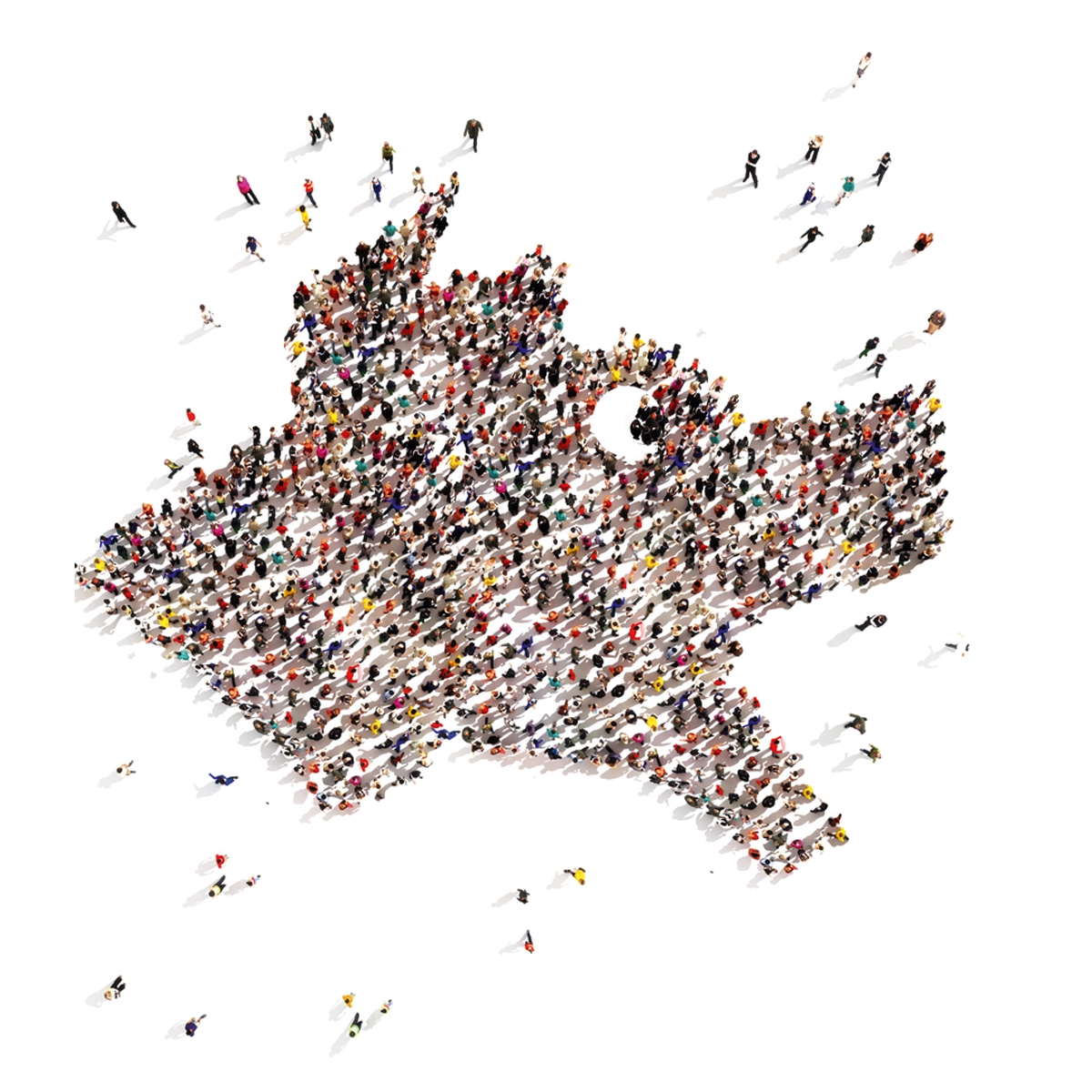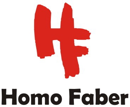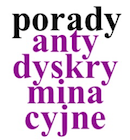Strona główna > Projekty > Projekty > Objazdowy Festiwal Filmowy WATCH DOCS. Prawa Człowieka w Filmie > 17. Objazdowy Festiwal Filmowy WATCH DOCS. Prawa Człowieka w Filmie

WATCH DOCS is well-established event on Lublin's cultural scene and for 17th time we can watch best film productions on human rights.
All films will be screened in cinema room in
Centrum Kultury (Cultural Centre) in Lublin, Peowiakow 12.
Entrance to all films and meetings is free.
Centrum Kultury is accessible for people with special needs.
Each year WATCH DOCS brings to you dozens of premieres and live meetings with world-famous documentary creators.
WATCH DOCS is also meetings and discussions with participation of experts, human rights defenders, publicists and politicians.
WATCH DOCS is a social movement. Every year there is over 100 volunteers engaged in an international edition. Following the one in Warsaw, there is a travelling festival that has been created and keeps developing only due to the grassroot movements from all over the country.
At present festival takes place in 40 cities.
WATCH DOCS is a collective enterprise of leading polish human rights organization – Helsinska Fundacja Praw Czlowieka (Helsinki Foundation for Human Rights), the biggest in East and Central Europe interdisciplinary art centre - Centrum Sztuki Wspolczesnej Zamek Ujazdowski (the Ujazdowski Castle Centre for Contemporary Art) in Warsaw and Spoleczny Instytut Filmowy (Social Film Insitut). Within 10 years to three main organizers joined over 70 partners from the whole country.
In Lublin festival takes place for 17th time!
We hope to see you there.
PROGRAM
21:00
Czech Allah, 82', Zuzana Piussi, 2017, Czech Republic. Photography: Zuzana Piussi. Montage: Vít Janeček. Production: Česká televize.
Two sides of Czech fight over immigrants.
Even though in Czech republic – like in Poland - the number of immigrants is insignificant, the issue still manages to polarize society and is deliberately used to mobilize right wing electorate.
18:00
Information War: Russia vs. West, 97', Paul Moreira, 2018, France. Photography: Pedro Brito Da Fonseca, Emmanuel Bach, Denis Slepov. Montage: Ludovic Gaillard. Production: ARTE France, Premières Lignes.
Russian propaganda machine from within.
20:00
Discussion/meeting
17:00
Good change, 77', Konrad Szolajski, 2018, Poland. Photography: Michał Slusarczyk. Montage: Paweł Kowalik, Małgorzata Prociak. Production: ZK Studio, TS Productions
18:30
Discussion/meeting
20:00
Underground of hope, 82', Jan Bluz, 2018, Poland. Photography: Bartlomiej Bartosiewicz, Przemyslaw Chojnacki, Radosław Furmanek, Kamila Myslek, Tomasz Ziolkowski. Montage: Przemyslaw Chojnacki. Production: BLUZ Media/ Centrum Technologii Audiowizualnych CeTA.
Medical marijuana in Poland.
17:00
Youth Unstoppable, 87', Slater Jewell – Kemker, 2018, Canada. Photography: Slater Jewell – Kemker. Montage: Mike Munn, Nick Taylor. Production: Scythia Films.
Young eco-activists vs. world leaders.
Personal truth, 18', Charlie Lyne, 2017, Great Britain. Photography: Charlie Lyne. Montage: Charlie Lyne. Production: Loop Projects Limited, Field of Vision.
Was Hillary Clinton kidnapping gang boss?
Atomic soldiers, 22' Morgan Knibbe, 2018, USA, Holland. Photography: Morgan Knibbe. Montage: Morgan Knibbe. Production: Morgan Knibbe.
Soldiers – witnesses of American nuclear tests in 50s break the silence.
After half a century of forced silence, atomic soldiers give their shocking testimonies.
Anubumin, 18', Zanny Begg, Oliver Ressler, 2017, Austria, Australia. Photography: William Robertson. Montage: Zanny Begg, Oliver Ressler.
20:00
To sing, 52', Olga Korotkaya, 2018, Poland, Russia. Photography: Marta Stysiak. Montage: Danizat Abitova. Production: Arkana Studio.
Throat-singing in Tuva Republic and its gender connotations.
See you in the cinema! :)
17th Travelling Film Festival WATCH DOCS. Human Rights in Film
(2019-03-01)
WATCH DOCS is well-established event on Lublin's cultural scene and for 17th time we can watch best film productions on human rights.
All films will be screened in cinema room in
Centrum Kultury (Cultural Centre) in Lublin, Peowiakow 12.
Entrance to all films and meetings is free.
Centrum Kultury is accessible for people with special needs.
WATCH DOCS is one of the biggest human rights themed festival world-wide, presenting documentaries in which advocacy for human rights is combined with an art form. Every year there are nearly 70 world-class films from all over the globe.
Annually nearly 100 000 spectators watch them: at the international festival in Warsaw, at travelling festival in 40 Polish cities and online. WATCH DOCS is the oldest documentary film festival in Warsaw - 1st edition took place in 2001.
Annually nearly 100 000 spectators watch them: at the international festival in Warsaw, at travelling festival in 40 Polish cities and online. WATCH DOCS is the oldest documentary film festival in Warsaw - 1st edition took place in 2001.
Each year WATCH DOCS brings to you dozens of premieres and live meetings with world-famous documentary creators.
WATCH DOCS is also meetings and discussions with participation of experts, human rights defenders, publicists and politicians.
WATCH DOCS is a social movement. Every year there is over 100 volunteers engaged in an international edition. Following the one in Warsaw, there is a travelling festival that has been created and keeps developing only due to the grassroot movements from all over the country.
At present festival takes place in 40 cities.
WATCH DOCS is a collective enterprise of leading polish human rights organization – Helsinska Fundacja Praw Czlowieka (Helsinki Foundation for Human Rights), the biggest in East and Central Europe interdisciplinary art centre - Centrum Sztuki Wspolczesnej Zamek Ujazdowski (the Ujazdowski Castle Centre for Contemporary Art) in Warsaw and Spoleczny Instytut Filmowy (Social Film Insitut). Within 10 years to three main organizers joined over 70 partners from the whole country.
In Lublin festival takes place for 17th time!
We hope to see you there.
PROGRAM
March 14, Thursday
18:00
When the war comes, 76', Jan Gebert, 2018, Croatia, Czech Republic.
Documentalist, journalist and historian Jan Gebert for three years observed paramilitary unit Slovacki Pobor (Slovakian recruitment). It consists of 200 young men from Slovakia, who willingly go through military training in the mountain bush. In times of migration crisis they get ready for war. In self-defence units they will protect their country from invasion. Gebert's document portraits student Peter Švrček, founder and general of Slovacki Pobor. Gebert's team accompanied boys during strenuous trainings, based on harsh rules and ruthless punishments. The behaviour of instructors might be shocking and the regulations resemble regime.
When the war comes, 76', Jan Gebert, 2018, Croatia, Czech Republic.
Documentalist, journalist and historian Jan Gebert for three years observed paramilitary unit Slovacki Pobor (Slovakian recruitment). It consists of 200 young men from Slovakia, who willingly go through military training in the mountain bush. In times of migration crisis they get ready for war. In self-defence units they will protect their country from invasion. Gebert's document portraits student Peter Švrček, founder and general of Slovacki Pobor. Gebert's team accompanied boys during strenuous trainings, based on harsh rules and ruthless punishments. The behaviour of instructors might be shocking and the regulations resemble regime.
19:30
We can do better, 74', Robin Kvapil, Radim Procházka, 2018, Czech Republic. Photography: Robin Kvapil, Petr Racek, Petr Salaba. Montage: Dimitris Polyzos. Production: Robin Kvapil, Radim Procházka.
Presidential campaign of a niche candidate: can common sense overrule populism?
Robin Kvapil – Czech director and blogger, terrified by the vision of next presidential term of office of Miloš Zeman, decides to do everything he can to prevent it. As a consultant he enters election campaign of Michal Horáčko – businessman and independent candidate and documents it from within. Kvapil and Procházka – co-director – register everything: meetings, TV debates, and provocations of political opponents. This dynamic film uncovers backstage of political marketing, but also shows that in great politics there is still place for common sense.
We can do better, 74', Robin Kvapil, Radim Procházka, 2018, Czech Republic. Photography: Robin Kvapil, Petr Racek, Petr Salaba. Montage: Dimitris Polyzos. Production: Robin Kvapil, Radim Procházka.
Presidential campaign of a niche candidate: can common sense overrule populism?
Robin Kvapil – Czech director and blogger, terrified by the vision of next presidential term of office of Miloš Zeman, decides to do everything he can to prevent it. As a consultant he enters election campaign of Michal Horáčko – businessman and independent candidate and documents it from within. Kvapil and Procházka – co-director – register everything: meetings, TV debates, and provocations of political opponents. This dynamic film uncovers backstage of political marketing, but also shows that in great politics there is still place for common sense.
21:00
Czech Allah, 82', Zuzana Piussi, 2017, Czech Republic. Photography: Zuzana Piussi. Montage: Vít Janeček. Production: Česká televize.
Two sides of Czech fight over immigrants.
Even though in Czech republic – like in Poland - the number of immigrants is insignificant, the issue still manages to polarize society and is deliberately used to mobilize right wing electorate.
Zuzanna Piussi observes both sides of refugees debate. She registers extremists' attempts of creating xenophobic narrative. The group though is being cynically used themselves by the right wing mainstream. On the other hand, it documents uneasy love story between known activist who volunteers with asylum seekers and Muslim man.
March 15, Friday
18:00
Information War: Russia vs. West, 97', Paul Moreira, 2018, France. Photography: Pedro Brito Da Fonseca, Emmanuel Bach, Denis Slepov. Montage: Ludovic Gaillard. Production: ARTE France, Premières Lignes.
Russian propaganda machine from within.
Russian special services mastered art of manipulation and weaponized information.
Moreira's film pictures attempts of Russian interference in times of French elections and connections between Russian secret services and French extreme right wing. Moreira uncovers functioning of official Russian propaganda media: Russia Today and Sputnik, but he also shows in detail anonymous elements of propaganda machine: hackers and Internet trolls. He shows how Russian business is being served by seemingly innocent happenings and public actions, which aim to polarize society.
Moreira's film pictures attempts of Russian interference in times of French elections and connections between Russian secret services and French extreme right wing. Moreira uncovers functioning of official Russian propaganda media: Russia Today and Sputnik, but he also shows in detail anonymous elements of propaganda machine: hackers and Internet trolls. He shows how Russian business is being served by seemingly innocent happenings and public actions, which aim to polarize society.
20:00
Discussion/meeting
March 16, Saturday
17:00
Good change, 77', Konrad Szolajski, 2018, Poland. Photography: Michał Slusarczyk. Montage: Paweł Kowalik, Małgorzata Prociak. Production: ZK Studio, TS Productions
Marta from Gazeta Polska (Polish Paper) Club and Tita from KOD (Komitet Obrony Demokracji-Democracy Defence Committee) or divided Poland in times of „ good change”. Marta coordinates Gazeta Polska Club in Gliwice and is active in Strzelcy Rzeczypospolitej (Polish Shooters). Tita is an activist in KOD. Both patriots, but patriotism does not unite them. In contrary, the social engagement places them on opposite sides of political barricade. Szolajski does not judge, but explores their worlds and tries to understand. He accompanies them while at home and when active in their groups, he is even at members-only meetings. He creates touching document on deeply divided Poland in times of „Good Change”.
18:30
Discussion/meeting
20:00
Underground of hope, 82', Jan Bluz, 2018, Poland. Photography: Bartlomiej Bartosiewicz, Przemyslaw Chojnacki, Radosław Furmanek, Kamila Myslek, Tomasz Ziolkowski. Montage: Przemyslaw Chojnacki. Production: BLUZ Media/ Centrum Technologii Audiowizualnych CeTA.
Medical marijuana in Poland.
Even though facts are undeniable, marijuana medical treatments are still controversial in Poland. Underground of hope is an environment of Polish supporters of medical marijuana – from patients and their families, through doctors who offer this kind of therapy all the way to activists of legalisation, importers and producers. They do so illegally, because marijuana is still prohibited in Poland. Film author compares situation in Poland and Spain, Slovenia and Israel. Discussions with experts and doctors do not leave doubts – criminalizing marijuana is beneficial only for drug dealers.
March 17, Sunday
17:00
Youth Unstoppable, 87', Slater Jewell – Kemker, 2018, Canada. Photography: Slater Jewell – Kemker. Montage: Mike Munn, Nick Taylor. Production: Scythia Films.
Young eco-activists vs. world leaders.
When Slater Jewell-Kemker as 15 year old girl started working on this documentary, she could not expect that it will take her another 10 years to finalize it. All this time with camera in her hand and huge determination she travelled the world following United Nations climate summits and documenting life of young activists for whom climate change is not just a media news, but terrifying daily reality. Jewell-Kemker Film shows that we can still save the planet, but we need actions of every on e of us and brave political decisions, that do not follow interests of the richest countries in the world.
18:40 Short filmsPersonal truth, 18', Charlie Lyne, 2017, Great Britain. Photography: Charlie Lyne. Montage: Charlie Lyne. Production: Loop Projects Limited, Field of Vision.
Was Hillary Clinton kidnapping gang boss?
December 4th, 2016. Madison Welch drove almost 500 km from his family town Salisbury in North Carolina to Washington. He stormed pizzeria Comet and shot three times from AR-15 rifle. His motives are known. E-mails, supposedly stolen by Russian hacker collective and gone viral, indicated that pizzeria was a cover for kidnapping gang led by Hillary Clinton. In this provocative and dynamic creation Charlie Lyne analyzes phenomena of fake news and proves that common sense and conspiracy theories are divided by a very thin line.
Atomic soldiers, 22' Morgan Knibbe, 2018, USA, Holland. Photography: Morgan Knibbe. Montage: Morgan Knibbe. Production: Morgan Knibbe.
Soldiers – witnesses of American nuclear tests in 50s break the silence.
After half a century of forced silence, atomic soldiers give their shocking testimonies.
In Morgan Knibbe film the last remaining witnesses of American nuclear tests from 50s describe events that changed their lives forever.
Anubumin, 18', Zanny Begg, Oliver Ressler, 2017, Austria, Australia. Photography: William Robertson. Montage: Zanny Begg, Oliver Ressler.
Australian refugee camps in Nauru – tropical hell.
Dependent from international help little island Nauru at Pacific is a place where Australians keep their unwanted guests. Ressler and Begg film contains unique records from hidden camera from detention centres where asylum seekers are being held in inhuman conditions. To complete the picture there are confessions of former employees, whistle-blowers who describe tragic situation of people convicted to indefinite stay in tropical hell.
Dependent from international help little island Nauru at Pacific is a place where Australians keep their unwanted guests. Ressler and Begg film contains unique records from hidden camera from detention centres where asylum seekers are being held in inhuman conditions. To complete the picture there are confessions of former employees, whistle-blowers who describe tragic situation of people convicted to indefinite stay in tropical hell.
20:00
To sing, 52', Olga Korotkaya, 2018, Poland, Russia. Photography: Marta Stysiak. Montage: Danizat Abitova. Production: Arkana Studio.
Throat-singing in Tuva Republic and its gender connotations.
Throat-singing called chöömej is fascinating musical tradition from Syberian Tuva Republic. Traditionally it is been reserved for men. Women exclusion has been linked to belief of chöömej causing female infertility. Main character, Czoduraa Tumat, is mistress and teacher of throat-singing, yet she tutors mainly boys. Few female students need to hide their passion from families and avoid difficult confrontation with power of tradition. Will chöömej give them strength to fight for their personal freedom?
See you in the cinema! :)








 Jeśli chcesz być informowany/a na bieżąco o wydarzeniach prosto z Homo Faber, zapisz się do naszego newslettera.
Jeśli chcesz być informowany/a na bieżąco o wydarzeniach prosto z Homo Faber, zapisz się do naszego newslettera.





 Portal na którym w tej chwili znajdujesz się został wykonany dzięki dotacji Unii Europejskiej - Środki Przejściowe 2005 (TF2005/017-488.01.01.01) - w ramach projektu Akademia Obywatelska IV realizowanego w roku 2008. Portal, Akademia HF oraz pismo Opornik są jego kontynuacją.
Portal na którym w tej chwili znajdujesz się został wykonany dzięki dotacji Unii Europejskiej - Środki Przejściowe 2005 (TF2005/017-488.01.01.01) - w ramach projektu Akademia Obywatelska IV realizowanego w roku 2008. Portal, Akademia HF oraz pismo Opornik są jego kontynuacją.